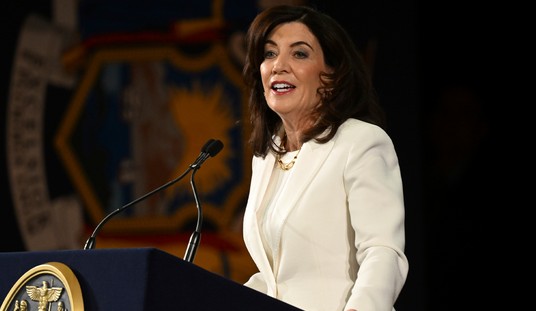When I asked Obama about another area of shifting public opinion—the legalization of marijuana—he seemed even less eager to evolve with any dispatch and get in front of the issue. “As has been well documented, I smoked pot as a kid, and I view it as a bad habit and a vice, not very different from the cigarettes that I smoked as a young person up through a big chunk of my adult life. I don’t think it is more dangerous than alcohol.”…
Less dangerous, he said, “in terms of its impact on the individual consumer. It’s not something I encourage, and I’ve told my daughters I think it’s a bad idea, a waste of time, not very healthy.” What clearly does trouble him is the radically disproportionate arrests and incarcerations for marijuana among minorities. “Middle-class kids don’t get locked up for smoking pot, and poor kids do,” he said. “And African-American kids and Latino kids are more likely to be poor and less likely to have the resources and the support to avoid unduly harsh penalties.” But, he said, “we should not be locking up kids or individual users for long stretches of jail time when some of the folks who are writing those laws have probably done the same thing.” Accordingly, he said of the legalization of marijuana in Colorado and Washington that “it’s important for it to go forward because it’s important for society not to have a situation in which a large portion of people have at one time or another broken the law and only a select few get punished.”
As is his habit, he nimbly argued the other side. “Having said all that, those who argue that legalizing marijuana is a panacea and it solves all these social problems I think are probably overstating the case. There is a lot of hair on that policy. And the experiment that’s going to be taking place in Colorado and Washington is going to be, I think, a challenge.” He noted the slippery-slope arguments that might arise. “I also think that, when it comes to harder drugs, the harm done to the user is profound and the social costs are profound. And you do start getting into some difficult line-drawing issues. If marijuana is fully legalized and at some point folks say, Well, we can come up with a negotiated dose of cocaine that we can show is not any more harmful than vodka, are we open to that? If somebody says, We’ve got a finely calibrated dose of meth, it isn’t going to kill you or rot your teeth, are we O.K. with that?”
[Harry] Reid said he began changing his mind about medical marijuana laws after witnessing the health struggles of people who would have been helped by the drug. One of those cases, he said, involved the son of an unnamed Las Vegas official.
“He was so skinny and doing so poorly, and someone told him and his mom, you know, you should smoke some marijuana,” he told The Sun in an interview published on its website on Thursday afternoon. “You get the munchies, you get extremely hungry.”
After the son gained weight, Mr. Reid said, “I thought, you know there might be some medical reasons to taking another look at this.”
Marijuana prohibition is like every other prohibition: it drives up costs, creates black markets, and criminalizes trivial behavior. This prohibition feeds an increasingly Kafkaesque, asset-forfeiture-driven, militarized police system, and takes up tens of thousands of prison beds that could be occupied by violent offenders. It costs billions in state and federal enforcement programs with an abysmal price-to-punch ratio.
Which is why it’s time for the GOP to seize the political benefits of getting ahead of where society is already going on the topic of weed.
I’m not saying we should blaze up at fundraisers, or that candidates need to start offering elephant bongs to donors, or that the campaign van needs a Phish sticker. But we should at least be talking about reducing the penalties, danger, and illegality for a drug that society decided a long time ago it likes…
We have a chance to show people our rhetoric on personal freedom isn’t just a campaign talking point, and that we’re serious about ending the criminalization of everyday life.
Forty-nine percent in a new ABC News/Washington Post poll support legalizing small amounts of the drug for personal use. Almost exactly the same number, 48 percent, are opposed.
Support for legalization is numerically at a new high in ABC/Post polls, albeit only by a single percentage point from its level slightly more than a year ago, and up dramatically from its lows in the mid-1980s and well into the 1990s.
At the same time, strength of sentiment continues to weigh against the weed. Thirty-six percent “strongly” oppose its legalization, more than the 28 percent who strongly support it.
As with issues like guns and immigration, the support/oppose polls don’t necessarily tell the whole story. While a majority supports legalizing marijuana, lawmakers might stand to lose more than they stand to gain by supporting it. That’s because issues like this are all about intensity.
While polling on intensity of marijuana support is limited, consider this: Pew’s poll last year showed just 12 percent of Americans had used marijuana in the past year, while 32 percent said it was morally wrong to do so. So those who are morally opposed to the use of the drug are nearly three times as plentiful as those who actually use the drug.
In June, Rand [Paul] attempted to split the difference, saying, “I don’t really believe in prison sentences for these minor, nonviolent drug offenses, but I’m not willing to go all the way to say it is a good idea either. I think people who use marijuana all the time lose IQ points; I think they lose their drive to show up for work.”…
The debate sets up a clash between two pillars of the Republican identity: morality and liberty. “They’re going to come in conflict with each other, for sure,” said Megyesy. “It’s going to be growing pains now as the Republican Party looks for its next breath of life. It’s really hard for them to say, ‘Oh, we would uphold federal law when it comes to marijuana, but push back on federal law on gun control or healthcare.’ I think there’s a big inconsistency there.”…
[T]here seems to be consensus that pot use will increase markedly, an outcome few are cheering. The logic is pretty simple: “Legalization reduces prices. Cannabis use responds to price. Therefore legalization will increase use,” Kleiman said. “Moreover, legalization improves access and reduces stigma and risk. That should encourage still more use. A 50-percent increase in use seems like a reasonable lower bound.” Both Sabet and Kleiman also spoke in grim terms about the emergence, somewhere down the road, of a marijuana industry that may well begin to act like the tobacco lobby used to, pouring money into weakening regulation and questioning science.
There was way too much giddiness in the media about the first day of legal pot selling in Colorado. Instead of all the happy talk, I think it’s time for some sober discussion and a strong dose of education about the addiction risks of smoking marijuana — particularly among young people. It may start out as a party, but it often ends up as something much, much worse.
With the grace of God, I’ve been clean and sober for over 18 years — a recovery experience that still has me going to a lot of 12-step meetings. And I hear time and again from young people coming into the rooms to get sober how pot smoking led to harder drugs such as cocaine and heroin. Now, this is anecdotal, and I am not an expert. And I will say that many people can control alcohol or pot or other drugs. But I am not one of them. And I am not alone.
Talk to virtually any professional drug counselor, and they will warn that pot is a gateway drug.
I spent too many nights dealing with the stupidity and struggles of stoned bandmates in their early teens to want to follow that path. And while I dare not engage on the “gateway drug” argument, I can tell you that too many of my bandmates who smoked pot in their teens moved on to coke, acid, pills, and occasionally heroin later in life. I spent many nights dealing with their struggles, many hours helping with them through rehab, too many early mornings in emergency rooms, and in one tragic case, too many nights mourning the loss of a dear friend. But I am sure all of these life experiences with friends and acquaintances over 30 years pales in comparison of the education of kick-starting a bong in Mom’s basement while cranking up “Do You Feel Like We Do.”
But I remain defiant in my ignorance.
Unlike alcohol, pot rarely makes you an angry stoner. Unlike coke, pot rarely makes you bankrupt. And unlike heroin, pot rarely makes you dead. Nope. In my three decades or so around a multitude of pot smokers, I have found that all too often, pot just makes you dumb.
In a recent interview, the world-famous pop star admitted she was heavily addicted to marijuana. “I have been addicted to it and it’s ultimately related to anxiety coping and it’s a form of self-medication and I was smoking up to 15 or 20 marijuana cigarettes a day with no tobacco,” she said. “I was living on a totally other psychedelic plane, numbing myself completely.”
Lady Gaga said she was speaking out to bust the myth that marijuana is just a harmless plant. “I just want young kids to know that you actually can become addicted to it, and there’s this sentiment that you can’t and that’s actually not true.”…
In its own report arguing against marijuana legalization, the American Medical Association said: “Heavy cannabis use in adolescence causes persistent impairments in neurocognitive performance and IQ, and use is associated with increased rates of anxiety, mood and psychotic thought disorders.”
The country can ill-afford a costly experiment with drugs. While we are undergoing a national debate over improving health care costs and education performance, legalizing marijuana will undercut those vital missions.
The sexual revolution may have not turned out too terrible for those who came from upper-income families of privilege and means. It may not have turned out terribly for those with access to higher education and connections. But the sexual revolution has helped ruin poor and middle class families.
The rise of single households in minority communities, the rise of teen pregnancy, the incentive for young men to go from one conquest to the next and the relaxing of attitudes and societal judgment have degraded the stability of the nuclear family. Combine that with the federal government’s war on poverty and there is decay, collapse, crime and social breakdown in too many poor neighborhoods and a harder path for the poor to climb to the middle class.
Now add the legalization of drugs to the mix. Gone may be the crime and gangs funded on the drug trade. Maybe. That is not a given. But young men and women in loosened social mores now with more readily available drugs might not turn out so well beneath the upper incomes. Upstairs and downstairs in the American manor house may behave largely the same, but the upstairs lords and ladies will have a harder time ignoring the blight their pursuit of hedonism has caused downstairs.
Making it about personal responsibility is all well and good until those of us who were personally responsible must cover the cleanup costs of those who were not.







Join the conversation as a VIP Member